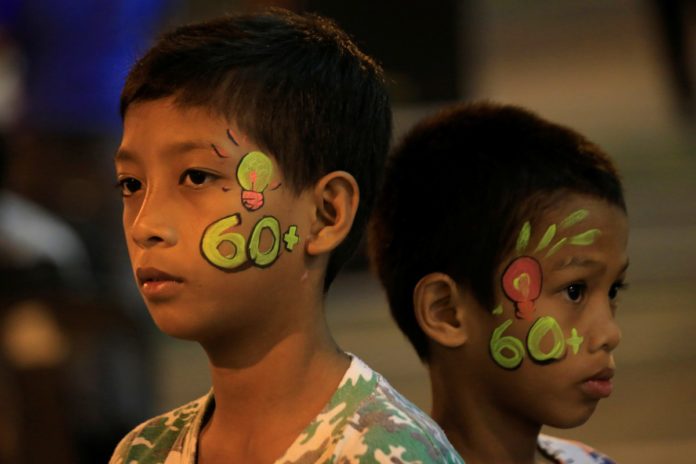CITIES across Asia went dark for an hour on Saturday night to mark Earth Hour as a symbol of commitment to preserving the planet.
The event, organised by the World Wide Fund for Nature (WWF), was celebrated this year in cities from Delhi to Jakarta, Manila to Taipei.
According to WWF, “Earth Hour is an initiative to encourage individuals, businesses and governments around the world to take accountability for their ecological footprint and engage in dialogue and resource exchange that provides real solutions to our environmental challenges.”
SEE ALSO: Southeast Asia is in the grip of a biodiversity crisis
It has been held on an evening in March every year since 2007, when the first lights-off event took place in Sydney, Australia. More than 180 countries have since participated.
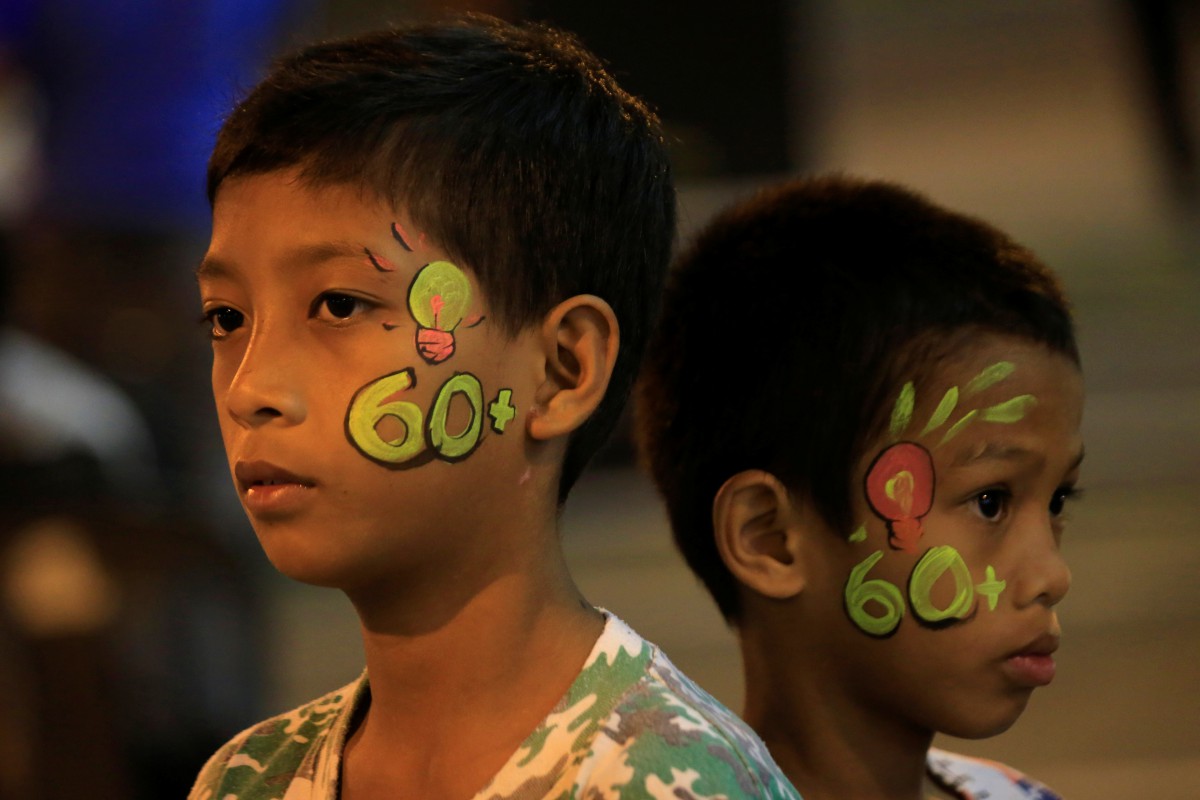
Boys with a painted number 60 on their faces, representing the 60 minutes of Earth Hour, are seen during Earth Hour outside a mall in Bacoor, Cavite city, south of Manila, Philippines March 24, 2018. Source: Reuters/Romeo Ranoco
In 2018, it was held between 8.30 and 9.30pm. Organisers said that more than 17,900 landmarks and monuments worldwide turned off their lights.
The Philippines government urged all its citizens to participate in Earth Hour to demonstrate their “commitment to saving mother earth” because the country was among the “most vulnerable to the impact of climate change”.
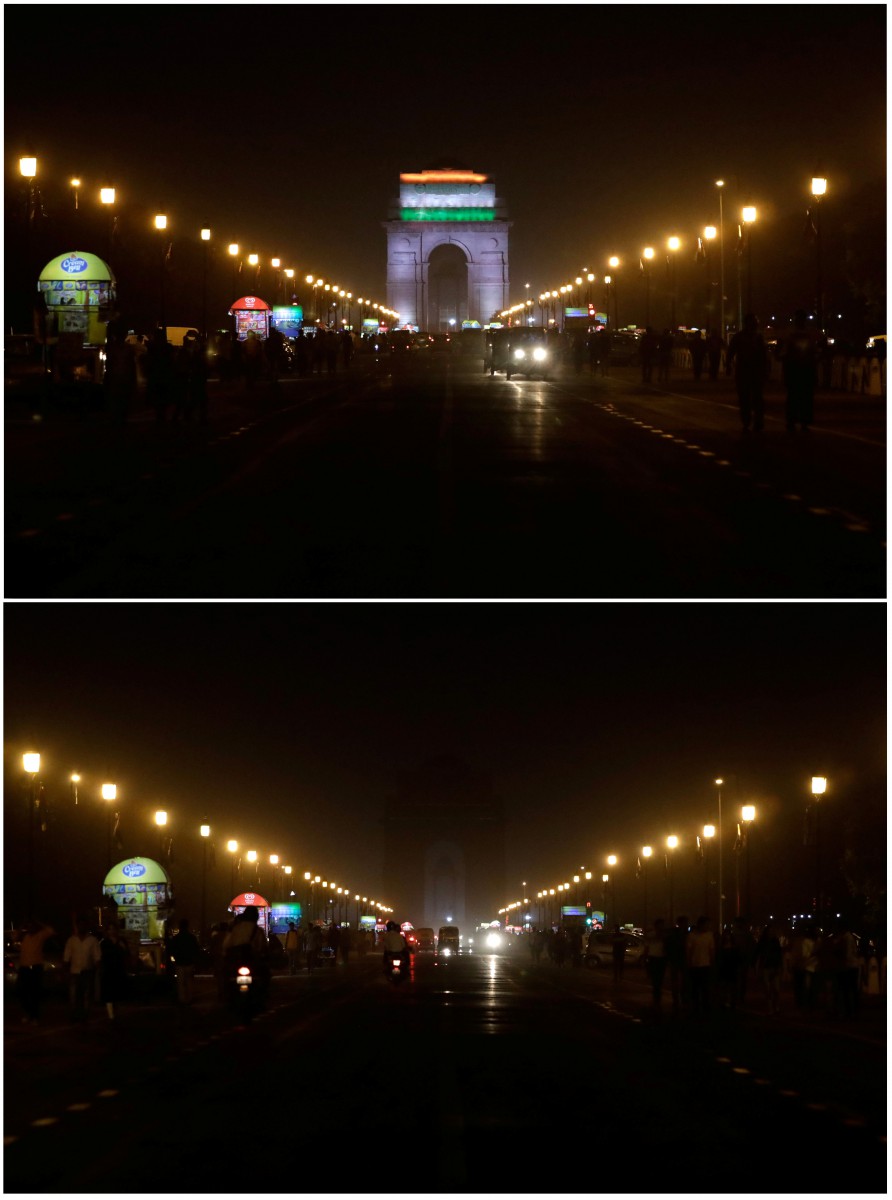
A combination picture shows the India Gate war memorial before (top) and after the lights were turned off for Earth Hour in New Delhi, India, March 24, 2018. Source: Reuters/Saumya Khandelwal
In India, authorities switched off lights at the India Gate and Akshardham Temple in Delhi. The country’s Environment Minister Harsh Vardhan publicly urged the community to switch off all essential lights during Earth Hour.
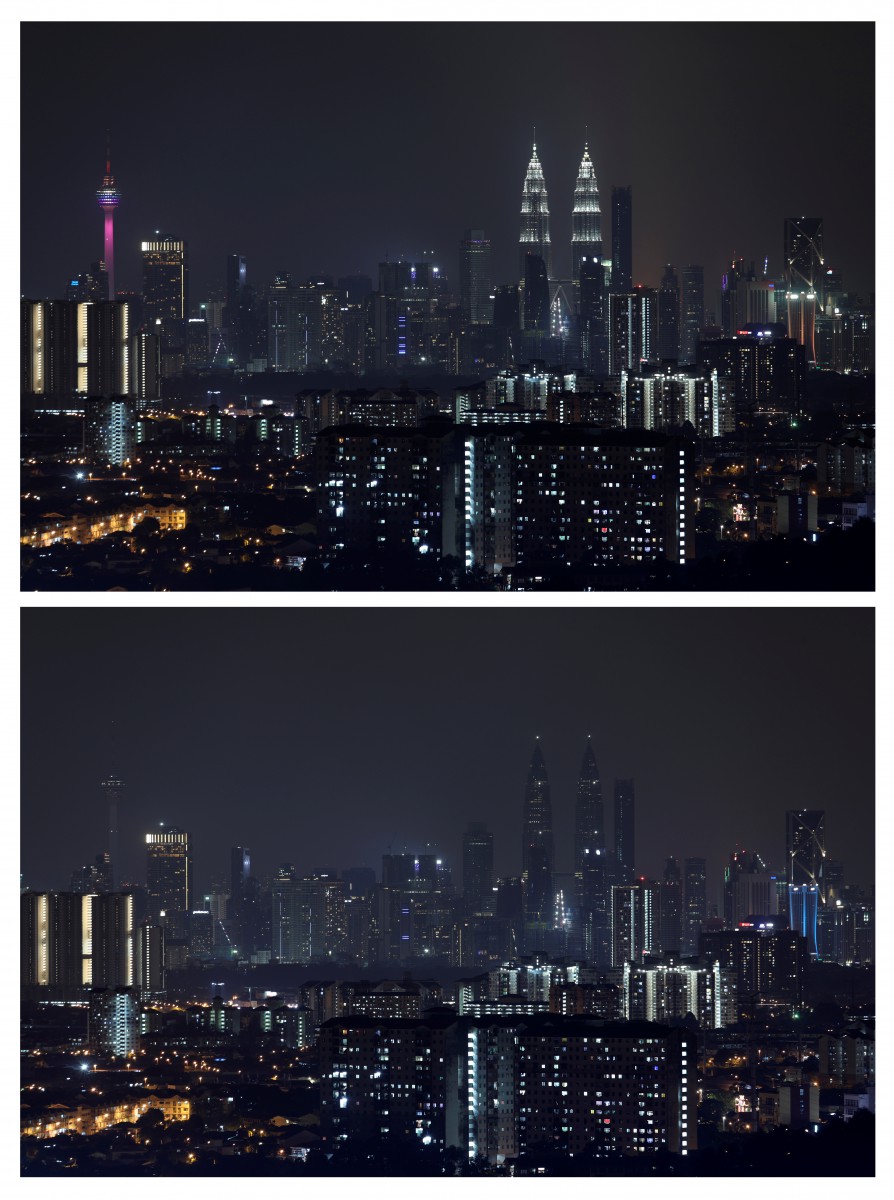
A combination photo shows the Petronas Twin Towers as lights were dimmed (bottom) and after lights were switched on to mark the Earth Hour in Kuala Lumpur, Malaysia March 24, 2018. Source: Reuters
“More than half of plant and animal species face local extinction in some of the world’s most naturally rich areas in biodiversity by the turn of this century if we continue along the current path that we are trending in terms of global warming,” Earth Hour organiser WWF Australia chief Dermot O’Gorman told the AFP.
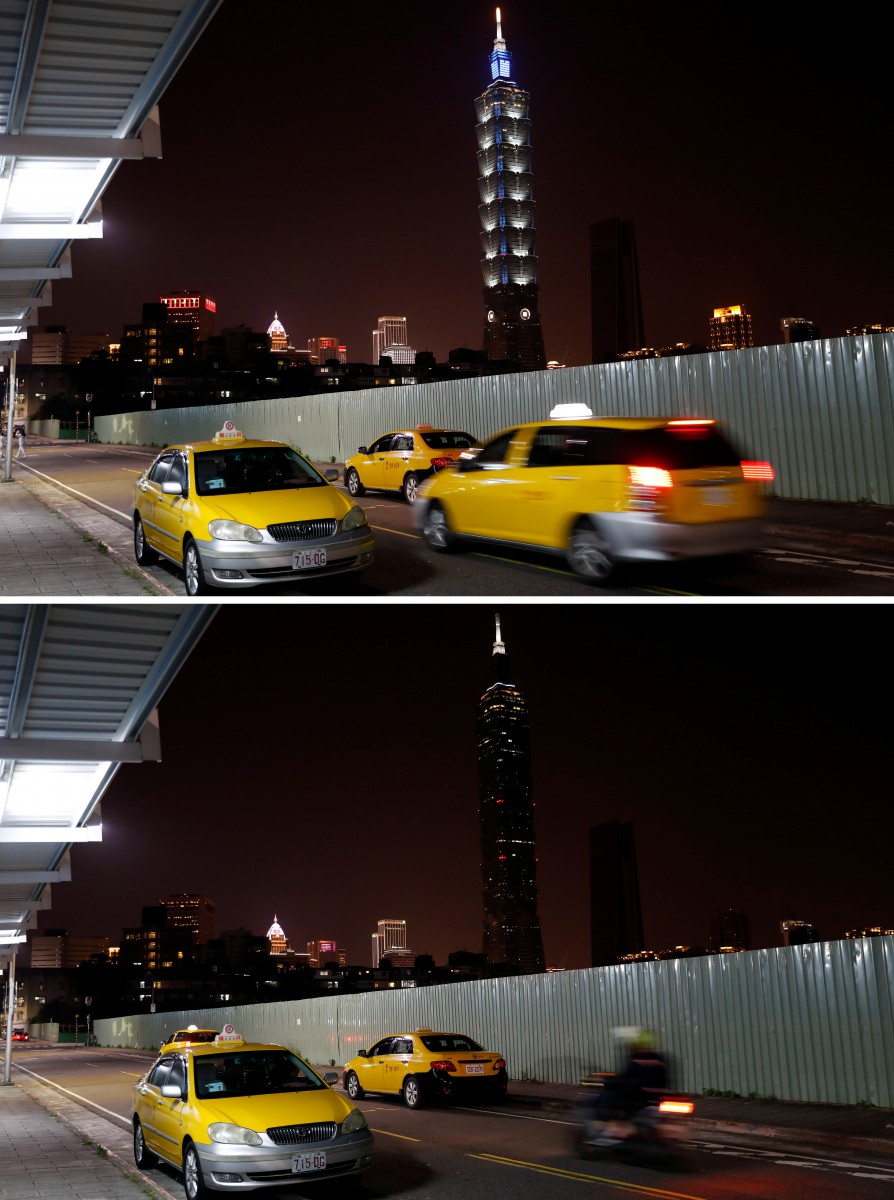
A combination picture shows the Taipei 101 building before (top) and during Earth Hour in Taipei, Taiwan March 24, 2018. Source: Reuters/Tyrone Siu
Liu Yue-mei, the chairwoman of the Society of Wilderness in Taiwan was quoted by Focus Taiwan as saying: “this year we want to also highlight the importance of biodiversity and invite people to mitigate climate change and human disturbances to the environment.”
“We face an urgent global crisis on plastics – one that we as humans are responsible for,” said the CEO of WWF Singapore Elaine Tan as quoted by the Straits Times.
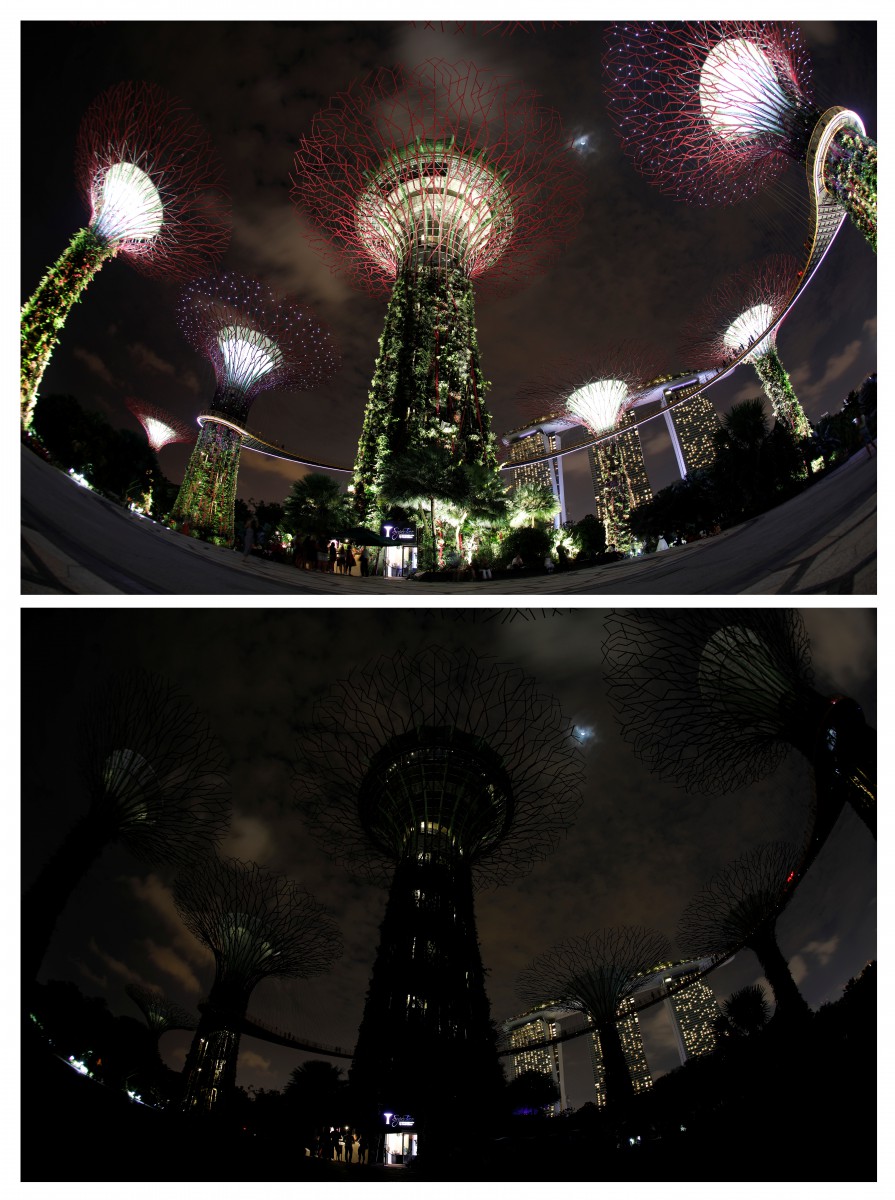
A combination photo shows giant concrete tree-like structures called ‘Supertrees’ before (top) and after the lights are dimmed to mark Earth Hour, at the Gardens by the Bay in Singapore March 24, 2018. Source: Reuters/Edgar Su
“It is therefore heartening to see the multitude of people joining us at Earth Hour, welcoming greater action including support for government legislation on plastic,” Tan said.
SEE ALSO: Cities need forests too: A call for forests amid our concrete jungles
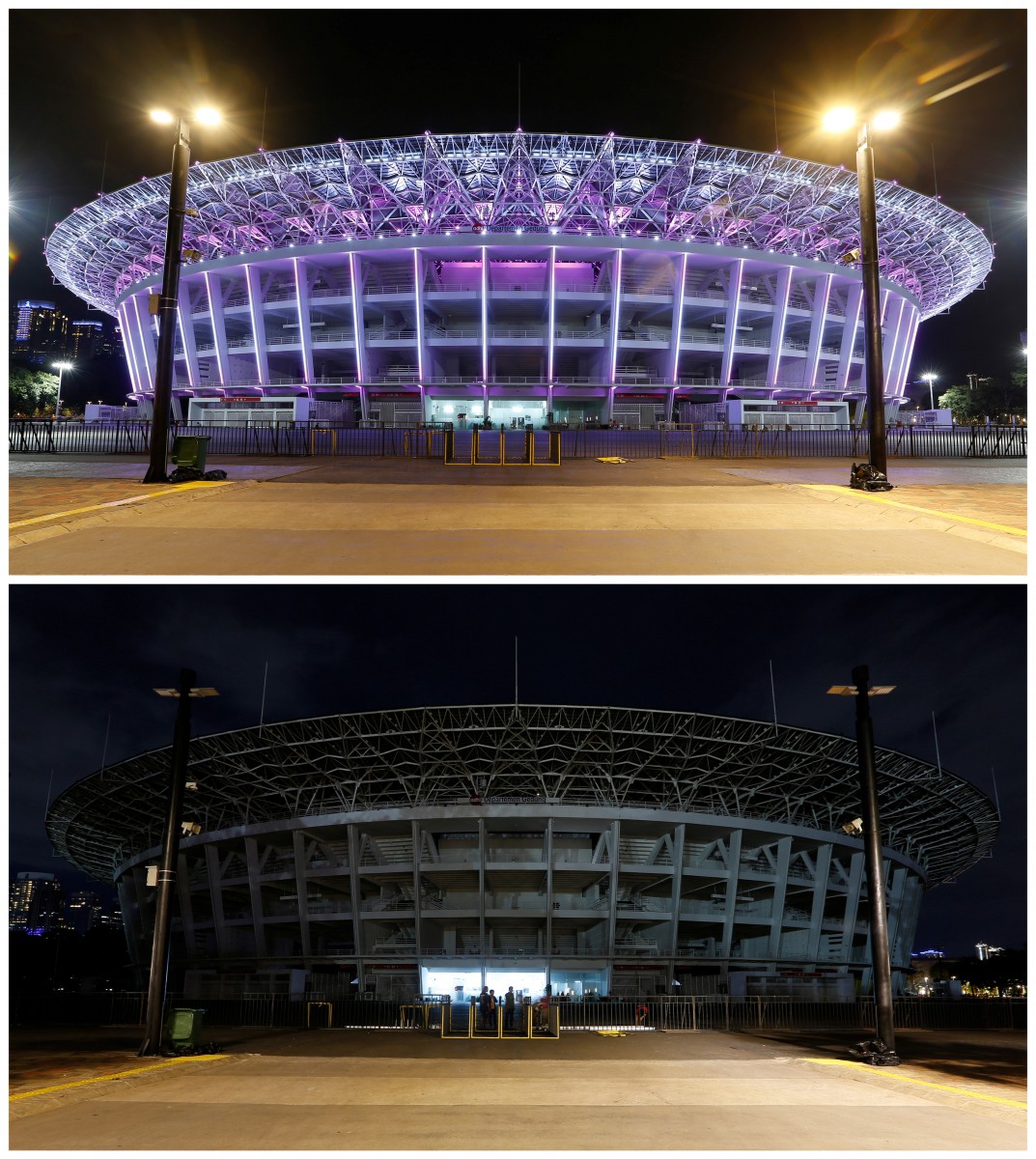
A combination photo shows a general view of Gelora Bung Karno Stadium before and after the lights are dimmed to mark Earth Hour, in Jakarta, Indonesia, March 24, 2018. Source: Reuters/Willy Kurniawan
In the Indonesian capital, governor Anies Baswedan was quoted by The Jakarta Post as saying: “hopefully, we’ll have bigger awareness in the future, not only during the one-hour campaign, but also in our daily activities.”
Elsewhere in the world, Paris’s Eiffel Tower went dark, as did Big Ben and the London Eye in the UK.
{“total”:2,”error”:””,”linkedin”:0,”stumbleupon”:0,”google”:0,”pinterest”:0,”facebook_total”:1,”buffer”:1,”twitter”:0,”vk”:0}
